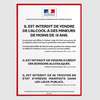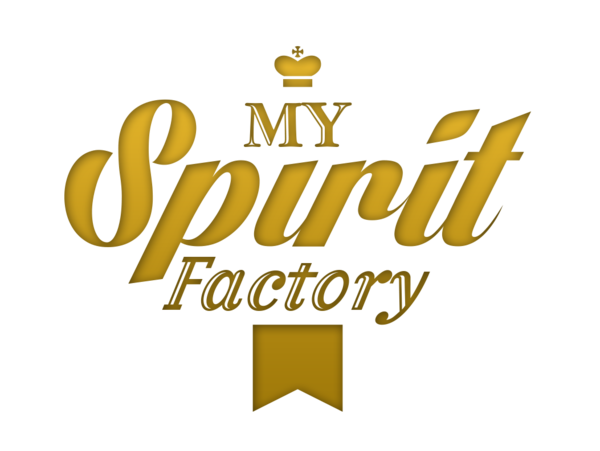Limited editions of spirits for ready-made clothes : the next big thing in sensorial marketing?
The importance of strong pieces and accessories in ready-to-wear.
Ready-made clothes brands often communicate about strong parts and accessories. The highlights of your wardrobe deserve that you make an investment in order to acquire for example a winter coat with an elaborate cut and more qualitative materials. It will last longer and its lines will look better on you than an 'all-in-one' coat available in shops with a discount price policy and high sales volumes.
As for accessories, they are just as much a source of interest from clothing brands since they will personalize your outfit while bringing a touch of practicality. It is therefore essential that they are of quality and that designers show proof of their creativity.
Finally, the basics are once again in the spotlight, with a move upmarket in recent years, which has seen innovations in terms of the quality of materials and cuts. It is not uncommon to see t-shirts made in France with fair trade cotton flirting around 50€. By the way: it's also the price of a good bottle of rum or vodka.
PERFUME EXTENDS THE BRAND'S CUSTOMER EXPERIENCE, WHY NOT SPIRITS?
Curiously, fashion and alcohol are two worlds that seem to ignore each other. Coco Chanel knew how to synthesize the worlds of perfume and clothing design with her Chanel N°5, and no one would deny that perfume has become a true fashion accessory.
However, perfume is going, unlike spirits, which are made by distillation, which is quite similar to the way they are made. There is one thing in common though: perfumes and spirits extend the customer's shopping experience of the brand over time.. And since some brands openly play the rock & roll or urban hip hop sound card, the question arises as to why there is no bottle of whisky, cognac or vodka in their effigy available for their customers in the shop?

SPIRITS AND SENSORY MARKETING.
Since we associate a rock & roll musical attitude with alcohol, let's visualize what a bottle of whisky or vodka would mean for the loyal customers of a brand that is in a rock & roll and artistic register. A small dozen 50cl or 70cl bottles nestled high up on a shelf behind the cash register or in a closed glass display case surrounded by leather goods or jewellery accessories. Each bottle bears a beautiful label bearing the brand's effigy, worked with the designers responsible for the collection.
This limited edition is available in small quantities in each of the brand's shops and becomes the strongest part of the brand's sensorial marketing. But this implies taking precautions: only holders of a loyalty card showing their majority, for example, could acquire a copy. We can also consider putting them on sale during private sales for example in order to enhance the operation in the eyes of customers who will be delighted to take some of your brand home with them and share it via a new medium.
IS THE CREATION OF BRANDED SPIRITS POSSIBLE?
Well, let's stop dreaming for a moment and study what the law says about the sale of alcohol to take away which is less restrictive than the sale of alcohol to consume on the spot (source: Public Health Code*). Here are the formalities to be respected in order to carry out a marketing campaign around a bottle of spirits bearing the effigy of your brand:
1- Take-away licence: to offer alcoholic beverages for take-away sale, an establishment must have a take-away licence (article L. 3331-3 of the CSP).
It is obligatorily attached to the goodwill, so each shop manager of the brand can make a request to the town hall (police headquarters in Paris and prefecture in Alsace-Lorraine) at least 15 days before the start of the sale of the bottles (cerfa n° 115442*05). This is free of charge.
The services check that the shop is not in a protection zone (near a school, places of worship, stadium, barracks...) and respects the quota of one alcohol outlet per 450 inhabitants. The receipt issued by the town hall services justifies the licence of the requested category (cerfa n° 115443*05).
2- Night sales: if the drinks are delivered between 10 pm and 8 am, a specific training is compulsory. The sale can be stopped before 10 pm during private sales in order not to be subject to this training. Please note that it is also forbidden to sell alcohol on credit on the premises or to take away.
3- Advertising authorised at the point of sale with reference to alcohol: 0.35m2 poster (article L.3323-4 of the CSP).
It is possible to send an e-mail with reference to the bottle. To be sent to the customer who has accepted the authorization of his personal data before sending. But no pop-up advertising.
4- Mandatory display measure for take-away outlets: poster to be placed near the shelves and the cash register.

5- Prohibition of the sale of alcohol to minors :
It is forbidden to receive minors under 16 years of age unaccompanied by a responsible adult in the shop (L 3342-3 of the CSP).
From 16 to 18 years old, access is free but no alcohol sale (only non-alcohol -1st group is possible).
Beware of the 16 year old trainee, he can of course neither consume nor sell the bottles.
6- In the event of an infraction: if the police find a breach of the laws and regulations governing the profession (after a warning), a breach of public order or a criminal and delinquent act, the closure of the entire establishment will be imposed and will not only concern the activity of selling alcohol.
7- The take-away license is not subject to the payment of tax but is subject to the legislation of indirect contributions. It is necessary to have one's spirits produced by a licensed warehousekeeper who will pay the excise duty when the bottles are put on the market. The brand would therefore have the status of a licensed sub-warehouse by working directly with alcohol suppliers and bottling/storage providers.
CONCLUSION
With regard to the Public Health Code, the biggest obstacles to the production of bottles bearing the effigy of clothing brands remain the perception that we have of the law a priori and the policy of the brand, which generally does not wish to be associated with alcohol.
There are, however, two possibilities for those who would like to take the plunge: to partner with a reputable spirits brand such as Hennessy (cognac) or Grey Goose (vodka), for example, in a capsule collaboration, or to work directly with service providers as a sub-warehouse.
At this stage it is therefore not impossible to deploy sensory marketing and offer new experiences to ready-made clothes
customers with limited editions of spirits bearing the brand's logo. At least for clothing brands with a rebellious, rock & roll or urban hip hop image.
Which is paradoxical when you know that a brand of cognac is obliged to withdraw from sale the textile merchandising (polo shirt, cap, umbrella with the company logo) on sale in its shop on the grounds that it advertises alcohol ! So it doesn't work both ways...
JÉRÔME SAVOYE
*https://www.interieur.gouv.fr/Archives/Archives-des-actualites/2018-Actualites/Parution-du-Guide-des-debits-de-boissons
Conclusion
With regard to the Public Health Code, the biggest obstacles to the production of bottles bearing the effigy of clothing brands remain the perception that we have of the law a priori and the policy of the brand, which generally does not wish to be associated with alcohol.
There are, however, two possibilities for those who would like to take the plunge: to partner with a reputable spirits brand such as Hennessy (cognac) or Grey Goose (vodka), for example, in a capsule collaboration, or to work directly with service providers as a sub-warehouse.
At this stage it is therefore not impossible to deploy sensorial marketing and offer new experiences to ready-to-wear customers thanks to limited editions of spirits bearing the brand's image. At least for clothing brands that assume a rebellious, rock & roll or urban hip hop image.
Which is paradoxical when you know that a brand of cognac is obliged to withdraw from sale the textile merchandising (polo shirt, cap, umbrella with the company logo) on sale in its shop on the grounds that it advertises alcohol ! So it doesn't work both ways...
JÉRÔME SAVOYE
*https://www.interieur.gouv.fr/Archives/Archives-des-actualites/2018-Actualites/Parution-du-Guide-des-debits-de-boissons
